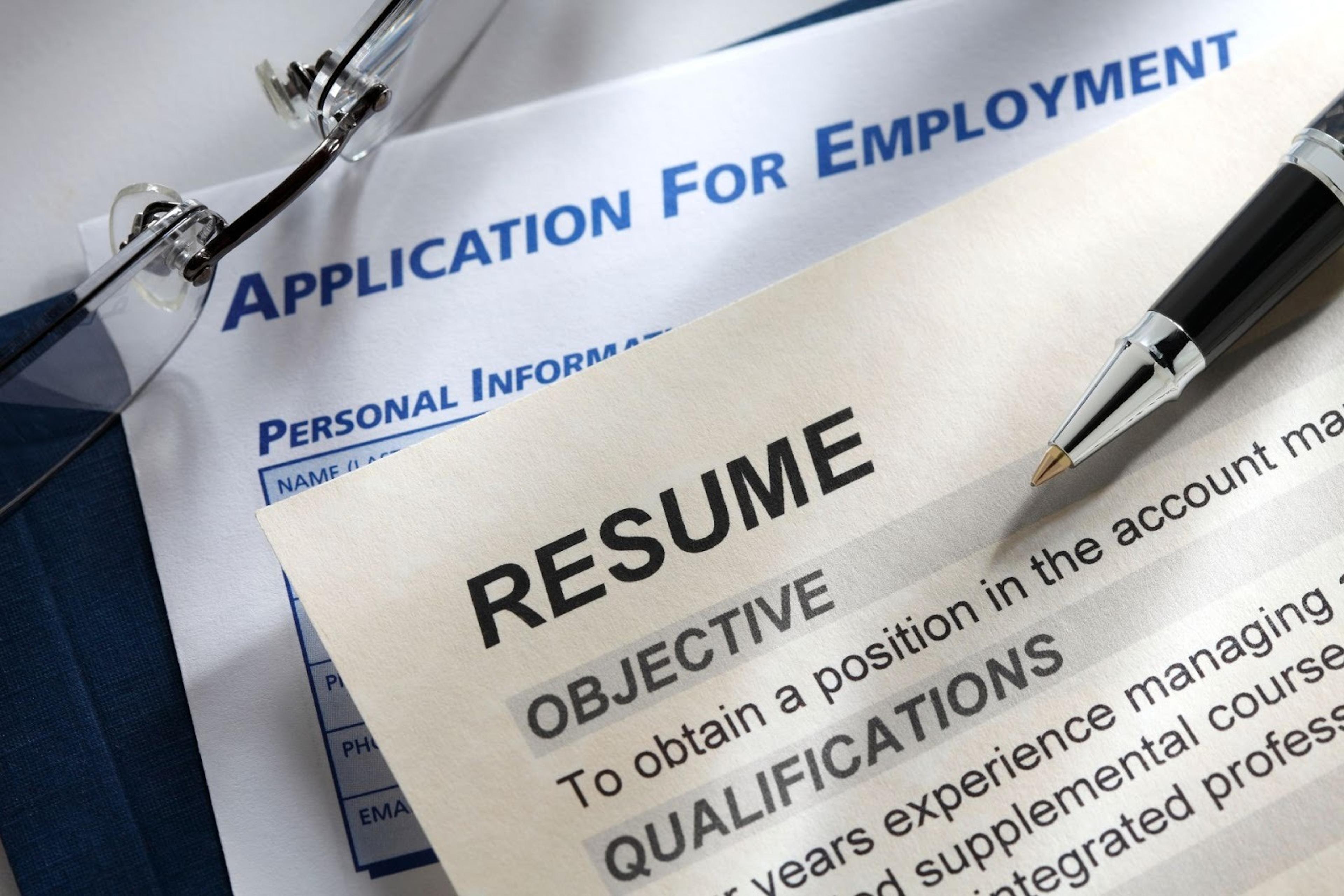Business Operations Interview Guide: Questions, Tips, & How to Prep
Master bizops interview questions with expert tips, real examples, and proven strategies to stand out in any business operations interview.
Posted November 19, 2025

Join a free event
Learn from top coaches and industry experts in live, interactive sessions you can join for free.
Table of Contents
If you’re preparing for a business operations role, you’re targeting one of the most pivotal roles in any organization. BizOps professionals serve as problem-solvers, bridge builders, and internal consultants who connect strategy and execution. They streamline operations, align multiple teams, and ensure that operational goals support the company’s long-term strategy.
So, how do you stand out in a bizops interview?
In this comprehensive guide, you’ll learn what the interview process looks like, how to answer behavioral and case interview questions, and what hiring managers are really looking for in top BizOps candidates.
Read: Business Operations (BizOps): What it Is & How to Break In
Understanding the BizOps Role
Before you start preparing, understand first what the BizOps role actually entails. In most organizations, business operations managers bridge strategy, data, and execution. They ensure every department contributes to the company’s overall success while staying aligned with long-term business goals.
A business operations manager might oversee project management, performance tracking, process improvement, and resource allocation across teams. Depending on the company, you may support a sales team, marketing division, or operations department while maintaining compliance with industry regulations and industry standards.
BizOps professionals are expected to:
- Develop and execute operational strategies
- Streamline operations and improve operational efficiency
- Coordinate across cross-functional teams
- Analyze raw data to uncover insights
- Maintain effective communication among key stakeholders
- Support strategic planning and operational excellence initiatives
In short, BizOps teams turn strategic goals into measurable execution, making this one of the most impactful functions in any growing organization.
Expert Tip: Think of them as the company’s internal problem-solving engine. You’re there to identify gaps, fix inefficiencies, and make sure every decision scales.
Inside the BizOps Interview Process
The interview process is designed to test how you think, collaborate, and adapt under ambiguity. Here’s what to expect at each stage.
1. Initial Recruiter Call
This first conversation, which is often a 30-minute screen, confirms your fit for the role. The recruiter assesses your background, soft skills, and alignment with the company’s job description.
Expect questions such as:
- Why are you interested in business operations?
- Tell me about a time you worked across multiple teams.
- How do you measure success in your current role?
Come ready to discuss your past experience and growth mindset. This is also your chance to ask clarifying questions about customer segments, key metrics, and the team’s priorities.
2. Hiring Manager Screening
Once you pass the recruiter stage, you’ll meet with a hiring manager. They are typically a senior operations manager or business operations manager. This round evaluates your problem-solving abilities, leadership style, and how you handle competing priorities.
You’ll likely face a mix of behavioral interview questions (“Tell me about a time you resolved conflict between teams”) and analytical questions (“How would you improve a lagging business line or optimize sales operations?”).
Strong answers show structure, reasoning, and your ability to drive positive change even under pressure.
Expert Tip: Great candidates don’t rush. They slow down, structure their answers, and demonstrate effective communication before solving.
3. Case Interview
The case interview is the defining stage for most BizOps candidates. These sessions test your analytical skills, reasoning, and ability to stay structured in ambiguity.
You might be given a hypothetical scenario like:
“Our delivery times have increased by 15% in the past quarter. How would you diagnose and fix this?”
How to approach it?
- Start with clarifying questions to define the problem.
- Identify potential causes using key metrics and raw data.
- Outline a structured approach to test each hypothesis.
- Link your recommendation to measurable outcomes like cost savings, efficiency, or user engagement.
Expert Tip: Practice through mock interviews. Verbalize your thought process, and focus on clarity.
4. Onsite or Virtual Loop
The final round, often an onsite interview loop, includes multiple stakeholders. Each interviewer assesses a specific skill set, from stakeholder management to cultural alignment.
Expect questions like:
- How has your project management experience improved coordination?
- How do you ensure compliance while maintaining operational excellence?
Stay composed, ask follow-up questions, and keep your communication confident and adaptable.
Common BizOps Interview Questions
Because BizOps covers strategy, analytics, and execution, you’ll face a mix of operations interview questions, behavioral prompts, and analytical challenges.
Behavioral Interview Questions
These assess your interpersonal skills, adaptability, and leadership judgment.
Examples:
- Tell me about a time you led a project across multiple teams.
- Describe a situation where you faced conflict resolution challenges.
- Share how your problem-solving skills helped achieve a major business goal.
When answering, use the STAR method (Situation, Task, Action, Result). Keep your stories data-driven and show how you ensured compliance while managing key stakeholders.
Analytical and Problem-Solving Questions
These test your ability to interpret raw data and act on it.
Example:
“If the company’s conversion rate drops by 10%, what data would you analyze first?”
Demonstrate your analytical skills, ability to prioritize tasks, and comfort making decisions under uncertainty.
Case Interview Questions
Sample questions include:
- “Your sales team is missing quarterly targets. How would you fix it?”
- “Our new business line isn’t scaling. What’s your plan?”
Interviewers want to see structure, reasoning, and adaptability, not memorized frameworks.
Technical and Data Questions
While BizOps isn’t a technical role, interviewers want to see how you think through numbers.
Example:
“How would you define KPIs to evaluate operational efficiency in customer support?”
Focus on outcomes and insights rather than formulas.
How to Prepare Like a Pro
The best BizOps candidates show how they think and lead. Preparation means mastering structure, clarity, and curiosity.
Study the Company’s Operational Strategies
Start by researching how the company operates. Understand its operational strategies, revenue drivers, and competitive landscape. Look into recent initiatives, quarterly reports, or leadership interviews to learn how business operations managers drive results.
Then, connect your past experience to those goals. If the company is focusing on scaling operations or improving efficiency, share examples where you’ve helped a team achieve similar outcomes. This demonstrates that you already think in terms of operational goals and company-wide impact.
Expert Tip: Specificity builds credibility. Use recent data or trends to support your examples.
Master Case Interviews with a Structured Approach
A case interview mirrors what BizOps teams do daily. Begin with clarifying questions to define the issue. Then, break it into measurable parts and analyze the trade-offs involved. Conclude with actionable operational strategies that improve operational efficiency or address the root cause.
During mock interviews, practice thinking out loud. Show how you prioritize, test assumptions, and adapt as new information arises. Interviewers are looking for clear reasoning, not perfect math.
Prepare for Behavioral and Operations Interview Questions
Expect questions about your leadership, communication, and problem-solving style. Be ready to discuss times you led cross-functional teams, managed conflict resolution, or implemented process improvements under tight timelines.
Explain not only what you did, but why you made those decisions. That insight into your thought process tells interviewers you’re reflective and intentional.
Strengthen Stakeholder Management
Influence often matters more than authority. You’ll work with various stakeholders across departments who may have competing goals. Prepare examples where you navigated misaligned priorities and still achieved alignment through data and effective communication.
For instance, if marketing wanted speed but compliance needed rigor, explain how you created a shared system to keep both teams aligned. This shows emotional intelligence and leadership under pressure.
Expert Tip: Highlight empathy and structure equally. It’s what turns collaboration into results.
Use Mock Interviews to Sharpen Judgment
Treat practice sessions as rehearsals for high-stakes problem-solving. Run mock interviews with peers or mentors and replicate real conditions. Pay attention to pacing and clarity rather than chasing perfect answers. Revisit sample interview questions that test both analytical and interpersonal depth. The more you simulate real conditions, the more naturally structured your answers will sound during onsite interviews.
Ask Smarter Questions at the End
When interviewers ask, “Do you have any questions for us?”, view it as your final chance to leave an impression. Ask about the team’s stakeholder management structure, how they define success in the BizOps role, or what operational goals they’re focused on this quarter. These questions demonstrate maturity, curiosity, and a genuine interest in impact.
Expert Tip: Also, ask questions about impact. It signals you already think like an insider.
What Hiring Managers Look For
Across industries, hiring managers look for candidates who bridge analytical thinking with collaboration.
They want people who can:
- Communicate with various stakeholders confidently
- Use a structured approach to solve problems
- Show both technical skills and soft skills
- Align execution with strategic planning and business goals
Read: Business Operations Resume Guide (With Examples & Template)
Expert Insights from Leland Coaches
"We know it's really, really competitive to get roles like these. It takes crafting an awesome application and resume, really practicing your interviews, and understanding the best ways to network."
Giselle T., Richard H., and Justin L.,
"Shift your mindset from wanting to get into strategy and operations to being in it already. That means owning hard problems no one’s solving and finding ways to just do it."
Giselle T., Richard H., and Justin L.
Visit: Top 10 Business Mentors and Top 10 Business Development Coaches
Final Tips and Moving Forward
Acing the interview is about mastering both logic and empathy. The best candidates combine structured thinking with storytelling. They can walk interviewers through tough calls while showing authenticity and emotional intelligence.
Stay calm under pressure, clarify before you answer, and use specific examples tied to measurable results. Follow up afterward with a short thank-you note that reiterates your enthusiasm and alignment with the company’s mission. Small gestures signal professionalism and emotional intelligence.
The Bottom Line
Business operations interviews test how you think, collaborate, and lead. By mastering bizops interview questions, preparing strategically, and practicing through mock interviews, you’ll walk in confident, credible, and ready to make an impact.
BizOps rewards clarity, adaptability, and ownership. With the right preparation, you’ll prove you’re ready to help drive the company’s next phase of growth.
Work with a Leland Coach to Prepare for Your Interview
Every great BizOps career starts with guidance and preparation. Partner with a Leland coach who’s been in your shoes. They’ll help you refine your story, master case interviews, and approach every conversation with confidence.
Read these next:
- Business Strategy vs. Operations: Key Differences & What to Know
- How to Land a Google BizOps Role
- Business Operations Vs. Business Development: What's the Difference?
- What Do You Actually Learn in Business School?
- How to Nail “Tell Me About a Time…” Interview Questions
FAQs
What are the 10 main interview questions?
- Common questions include:
- Tell me about yourself.
- Why do you want this role?
- What are your strengths and weaknesses?
- Tell me about a time you solved a problem.
- How do you handle conflict?
- Describe your leadership style.
- How do you prioritize tasks?
- What’s your greatest achievement?
- How do you measure success?
- Why should we hire you?
What are the 3 C's of interviewing?
- The three C’s are Confidence, Communication, and Connection. This shows assurance, clarity in speaking, and rapport with your interviewer.
What are the 5 STAR questions in an interview?
- STAR stands for Situation, Task, Action, and Result. These behavioral questions start with prompts like “Tell me about a time…” and are best answered by describing what you did and the outcome you achieved.
How do I prepare for an OPS interview?
- Research the company’s operational goals, review common BizOps case interviews, and practice mock sessions. Be ready to discuss how you’ve improved processes, collaborated across teams, and solved real business problems using data and structure.
Browse hundreds of expert coaches
Leland coaches have helped thousands of people achieve their goals. A dedicated mentor can make all the difference.















